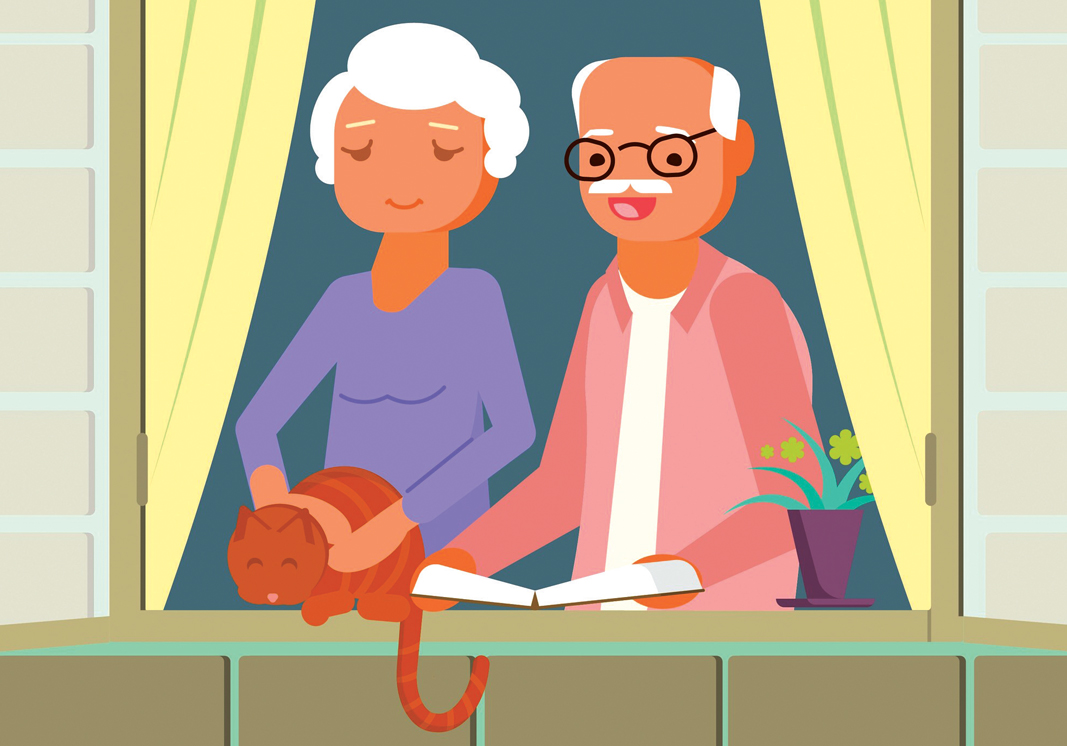Learning about tough times from our elders
By Pat Irwin
The days of COVID-19 will be remembered by images—long-term care residents at the window, masks, social distancing and hoarding of toilet paper. Challenging indeed! Insurmountable? Not at all—just ask a senior!
Canada’s Depression and War Babies (1930-1947) are known as a very hardy breed of seniors who grew up in an era of economic uncertainty where thrift was the order of the day. Housewives often queued up for an hour a day for available provisions and cooked creatively with what they could get. The mantra of the day: “use it up, wear it out, make it do or do without.”
They are the first generation to do better than their parents, excelling in their careers with relative ease, and having less competition from older brothers and sisters who did not return from the war. The demographics of this cohort are fascinating. Most were homeowners and likely to have a religious affiliation. Many a woman was left single only to become well-educated and financially astute. Those who did marry demonstrated long-term stability in their relationships.
So what can these resilient seniors teach us as we do battle with living in COVID-era times? Let’s look at the values they hold dear:
Economically: These folks seek value for money. They’re loyal, shop purposefully and buy the best they can afford, but believe you me, they’re not extravagant. They worry about outliving their assets because they want to leave a legacy for their children. Research demonstrates that many are still working beyond official retirement age, value personal service and tend to dislike self-service.
Things: When non-essential businesses are closed, most of us began shopping like mad online. Being more self-sufficient and satisfied with their possessions this cohort is more likely to mend, repair or alter what they already have.
Health: Independent and reluctant to admit to a disability or seek help, these seniors use the doctor as a last resort. They prefer not to have help at home from outsiders. You can expect a high level of trust in their doctor’s advice and few requests for second opinions.
Labelling: Post-war seniors resent being called old and tend to want to age invisibly. You’ll find these seniors favouring discreet hearing aids, practical but smart clothing and beauty aids to keep them looking sharp. They are increasingly choosing alternative medicine and paying attention to wellness.
Socially: This cohort believes in social responsibility and community involvement. Having close community ties has helped many single seniors create safe “bubbles” that provide a support system, especially at “family times” times such as Easter, Christmas, Thanksgiving etc. They were the original recyclers, are often volunteers and trusted part-time employees. They take pride in their work and leisure activities, favouring gardening, cottaging, crafts and home repair. In fact, they’re bemused by the lavish and unproductive toys so beloved of the Baby Boomers.
Housing: Most members of these elders grew up in far smaller accommodation. They are used to—and often prefer—multi-resident living. In the 1930s, it was quite common for a family of six to comfortably occupy a semi-detached two-bedroom house that today is considered cramped for a young couple. In many cultures, multigenerational living was a given and everyone adjusted as the family circle expanded.
Work: Many of these Depression and post-war babies worked for the same company for their entire working life. Work was rarely done from home, and having a quiet office was not feasible. Siblings shared the kitchen table for their homework. Being “handy” was valued and often gender-specific; women with baking, sewing, gardening and crafts, men with woodworking and, often, a basement workshop.
Past-times: Raised with non-screen activities such as reading, crafts, board games, puzzles and outdoor games, these children often lived and played in confined spaces. Think 24/7 rainy-day activities! Today however, they’re ready to embrace technology—tablets, Facetime, Skype and Zoom have become routine ways to stay in touch with grandkids, family and friends. Forget bingo—it’s internet classes, travel clubs, university extension courses. They are enthusiastic about “green” programs, gardening, recycling, and community involvement such as volunteering.
Beliefs, attitudes and faith: Our grandparent’s generation continues to foster strong family and neighbourhood ties; they express faith and have a belief system, although not necessarily participating in formal religion. They are still willing to place great trust in governments and institutions and the “greater good.” Their faith and optimism are valuable anytime, especially during a global pandemic.
Yes, the COVID-19 pandemic has been a terrible experience—but let’s not forget those whose life skills gave them the opportunity to rise to the occasion. Let’s all sit back for a second and learn from yesteryear’s wisdom and experience!
Pat M. Irwin, BA, AICB, CPCA, is the president of ElderCareCanada and a professor of distance learning at Centennial College.












